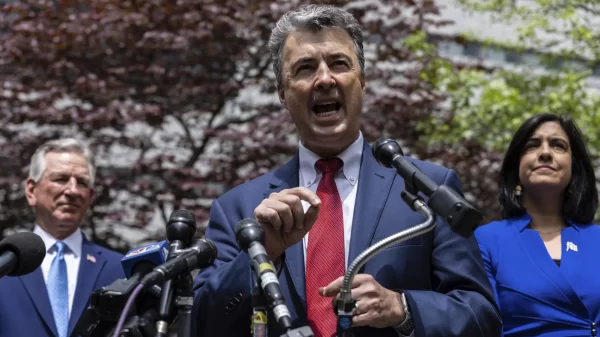By Chip Brownlee
Alabama Political Reporter
MONTGOMERY—Seventy-eight people die in the US every day from opioid painkiller overdose, and the Yellowhammer State has the highest rate of painkiller prescribing in the country and one of the highest rates of opioid abuse in the country. Gov. Robert Bentley wants a better plan to attack the epidemic.
Bentley on Thursday signed an executive order creating a new Council on Opioid Misuse and Addiction. The Council will offer recommendations on curbing the opioid addiction epidemic in Alabama, a state which has seen nearly a 20 percent increase in drug-overdose deaths from 2013–2014, according to the CDC.
“The United States is experiencing a drug-overdose epidemic,” Bentley, who is a licensed dermatologist, said Thursday. “It’s causing deaths, which are rising in a lot of broad categories of people. More than three out of five overdose deaths involve opioids.”
The Council, which will be co-chaired by State Health Officer Dr. Tom Miller and the Commission of the Department of Mental Health James Perdue, will have its first meeting within the next six weeks to develop a plan of action to combat the over-prescribing, misuse of and addiction to opioid painkillers like Lortab, Oxycontin and Percocet.
More than 5.8 million opioid prescriptions were issued in Alabama last year, Bentley said. That amounts to more than 1.2 prescriptions per person in the State, which has a population of only about 4.8 million people.
“We’ve got to have changes to make sure that we can lower this,” Bentley said. “Unfortunately, it’s still of epidemic proportions. Many people will be involved in fighting this abuse, and we’re going to work together to try and solve this problem. We owe it to our citizens to try and protect them.”
Bentley’s Council will develop a strategic plan that will have recommendations for new policies, regulations and even suggestions for new legislation to combat the epidemic. He hopes to have some recommendations before the Legislature reconvenes in February.
“This really affects lives at all levels,” Miller said Thursday. “We are hopeful that, by working with our partners, we will find solutions to reverse this escalating crisis.”
This isn’t the State’s first attempt at combatting opioid misuse and addiction. The Alabama Department of Public Health maintains a Prescription Drug Monitoring Program that allows doctors to access information about what controlled substances a patient has previously been prescribed.
That program was established by legislation in 2006. Providers are required to report prescriptions to the program but are not forced to review the information in the database before prescribing prescription narcotics to patients.
“I’m not sure that we shouldn’t have people in the offices who have to access that database,” Bentley said.
The Council will likely study whether providers should be forced to check the program’s databases before prescribing opioids. He also suggested that the Council may look into encouraging providers to leave opioid prescribing to pain-management specialists.
“They really need to be prescribed more by people who are in pain management,” Bentley said. “Not everyone needs to prescribing, at least not on a widespread basis, these medications. I think that education is a very important part of it as far as providers are concerned.”
Opioids are generally prescribed under brand names like Lortab, Oxycontin and Percocet. Those drugs contain hydrocodone, oxycodone and other opioid drugs. Being prescribed opioids is a major risk factor for illegal drugs use and has led to more use of heroin, an extremely addictive, illegal opioid that has extremely high rates of overdose, according to the National Institute of Drug Abuse.
But even though Bentley said bad prescribing techniques may be a cause of the opioid epidemic, the governor doesn’t believe rule-following, licensed providers are the principal reason why the opioid drug epidemic has exploded.
“Only 17 percent of overdoses are from patients with drugs that are prescribed by physicians,” Bentley said. “Most of these prescriptions that people take or get come from other people’s medicine cabinets, or somebody just sells them. I think there has been a decrease [in improper prescriptions] with education of providers.”
Perdue, who leads the State’s Department of Mental Health, said the State only treats about one-tenth of patients who suffer from opioid addiction. He wants to see the Council increase their level of care, but to do that, he said the Department “absolutely” needs more funding.
“The first thing we’ve got to do is educate people on the problem, and education not only of our children but of our communities,” Perdue said. “We need to make sure that we’re not having more prescriptions issued than citizens in the State of Alabama. … But we haven’t had enough money to address it.”



















































